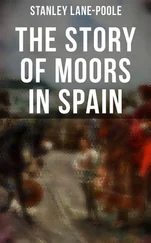Hendrik Loon - The Story of Mankind
Здесь есть возможность читать онлайн «Hendrik Loon - The Story of Mankind» весь текст электронной книги совершенно бесплатно (целиком полную версию без сокращений). В некоторых случаях можно слушать аудио, скачать через торрент в формате fb2 и присутствует краткое содержание. Год выпуска: 2000, Издательство: Electronic Text Center. University of Virginia Library., Жанр: Старинная литература, на английском языке. Описание произведения, (предисловие) а так же отзывы посетителей доступны на портале библиотеки ЛибКат.
- Название:The Story of Mankind
- Автор:
- Издательство:Electronic Text Center. University of Virginia Library.
- Жанр:
- Год:2000
- ISBN:нет данных
- Рейтинг книги:3 / 5. Голосов: 1
-
Избранное:Добавить в избранное
- Отзывы:
-
Ваша оценка:
- 60
- 1
- 2
- 3
- 4
- 5
The Story of Mankind: краткое содержание, описание и аннотация
Предлагаем к чтению аннотацию, описание, краткое содержание или предисловие (зависит от того, что написал сам автор книги «The Story of Mankind»). Если вы не нашли необходимую информацию о книге — напишите в комментариях, мы постараемся отыскать её.
The Story of Mankind — читать онлайн бесплатно полную книгу (весь текст) целиком
Ниже представлен текст книги, разбитый по страницам. Система сохранения места последней прочитанной страницы, позволяет с удобством читать онлайн бесплатно книгу «The Story of Mankind», без необходимости каждый раз заново искать на чём Вы остановились. Поставьте закладку, и сможете в любой момент перейти на страницу, на которой закончили чтение.
Интервал:
Закладка:
This caused a very abrupt change in the lives of hundreds of thousands of people. Within a few years, many cities doubled the number of their inhabitants and the old civic centre which had been the real ``home'' of the citizens was surrounded with ugly and cheaply built suburbs where the workmen slept after their eleven or twelve hours, or thirteen hours, spent in the factories and from where they returned to the factory as soon as the whistle blew.
Far and wide through the countryside there was talk of the fabulous sums of money that could be made in the towns. The peasant boy, accustomed to a life in the open, went to the city. He rapidly lost his old health amidst the smoke and dust and dirt of those early and badly ventilated workshops, and the end, very often, was death in the poor-house or in the hospital.
Of course the change from the farm to the factory on the part of so many people was not accomplished without a certain amount of opposition. Since one engine could do as much work as a hundred men, the ninety-nine others who were thrown out of employment did not like it. Frequently they attacked the factory-buildings and set fire to the machines, but Insurance Companies had been organised as early as the 17th century and as a rule the owners were well protected against loss.
Soon, newer and better machines were installed, the factory was surrounded with a high wall and then there was an end to the rioting. The ancient guilds could not possibly survive in this new world of steam and iron. They went out of existence and then the workmen tried to organise regular labour unions. But the factory-owners, who through their wealth could exercise great influence upon the politicians of the different countries, went to the Legislature and had laws passed which forbade the forming of such trade unions because they interfered with the ``liberty of action'' of the working man.
Please do not think that the good members of Parliament who passed these laws were wicked tyrants. They were the true sons of the revolutionary period when everybody talked of ``liberty'' and when people often killed their neighbours because they were not quite as liberty-loving as they ought to have been. Since ``liberty'' was the foremost virtue of man, it was not right that labour-unions should dictate to their members the hours during which they could work and the wages which they must demand. The workman must at all times, be ``free to sell his services in the open market,'' and the employer must be equally ``free'' to conduct his business as he saw fit. The days of the Mercantile System, when the state had regulated the industrial life of the entire community, were coming to an end. The new idea of ``freedom'' insisted that the state stand entirely aside and let commerce take its course.
The last half of the 18th century had not merely been a time of intellectual and political doubt, but the old economic ideas, too, had been replaced by new ones which better suited the need of the hour. Several years before the French revolution, Turgot, who had been one of the unsuccessful ministers of finance of Louis XVI, had preached the novel doctrine of ``economic liberty.'' Turgot lived in a country which had suffered from too much red-tape, too many regulations, too many officials trying to enforce too many laws. ``Remove this official supervision,'' he wrote, ``let the people do as they please, and everything will be all right.'' Soon his famous advice of ``laissez faire'' became the battle-cry around which the economists of that period rallied,
At the same time in England, Adam Smith was working on his mighty volumes on the ``Wealth of Nations,'' which made another plea for ``liberty'' and the ``natural rights of trade.'' Thirty years later, after the fall of Napoleon, when the reactionary powers of Europe had gained their victory at Vienna, that same freedom which was denied to the people in their political relations was forced upon them in their industrial life.
The general use of machinery, as I have said at the beginning of this chapter, proved to be of great advantage to the state. Wealth increased rapidly. The machine made it possible for a single country, like England, to carry all the burdens of the great Napoleonic wars. The capitalists (the people who provided the money with which machines were bought) reaped enormous profits. They became ambitious and began to take an interest in politics. They tried to compete with the landed aristocracy which still exercised great influence upon the government of most European countries.
In England, where the members of Parliament were still elected according to a Royal Decree of the year 1265, and where a large number of recently created industrial centres were without representation, they brought about the passing of the Reform Bill of the year 1882, which changed the electoral system and gave the class of the factory-owners more influence upon the legislative body. This however caused great discontent among the millions of factory workers, who were left without any voice in the government. They too began an agitation for the right to vote. They put their demands down in a document which came to be known as the ``People's Charter.'' The debates about this charter grew more and more violent. They had not yet come to an end when the revolutions of the year 1848 broke out. Frightened by the threat of a new outbreak or Jacobinism and violence, the English government placed the Duke of Wellington, who was now in his eightieth year, at the head of the army, and called for Volunteers. London was placed in a state of siege and preparations were made to suppress the coming revolution.
But the Chartist movement killed itself through bad leadership and no acts of violence took place. The new class of wealthy factory owners, (I dislike the word ``bourgeoisie'' which has been used to death by the apostles of a new social order,) slowly increased its hold upon the government, and the conditions of industrial life in the large cities continued to transform vast acres of pasture and wheat-land into dreary slums, which guard the approach of every modern European town.
EMANCIPATION
THE GENERAL INTRODUCTION OF MACHINERY DID NOT BRING ABOUT THE ERA OF HAPPINESS AND PROSPERITY WHICH HAD BEEN PREDICTED BY THE GENERATION WHICH SAW THE STAGE COACH REPLACED BY THE RAILROAD. SEVERAL REMEDIES WERE SUGGESTED BUT NONE OF THESE QUITE SOLVED THE PROBLEM
IN the year 1831, just before the passing of the first Reform Bill Jeremy Bentham, the great English student of legislative methods and the most practical political reformer of that day, wrote to a friend: ``The way to be comfortable is to make others comfortable. The way to make others comfortable is to appear to love them. The way to appear to love them is to love them in reality.'' Jeremy was an honest man. He said what he believed to be true. His opinions were shared by thousands of his countrymen. They felt responsible for the happiness of their less fortunate neighbours and they tried their very best to help them. And Heaven knows it was time that something be done!
The ideal of ``economic freedom'' (the ``laissez faire'' of Turgot) had been necessary in the old society where mediæval restrictions lamed all industrial effort. But this ``liberty of action'' which had been the highest law of the land had led to a terrible, yea, a frightful condition. The hours in the factory were limited only by the physical strength of the workers. As long as a woman could sit before her loom, without fainting from fatigue, she was supposed to work. Children of five and six were taken to the cotton mills, to save them from the dangers of the street and a life of idleness. A law had been passed which forced the children of paupers to go to work or be punished by being chained to their machines. In return for their services they got enough bad food to keep them alive and a sort of pigsty in which they could rest at night. Often they were so tired that they fell asleep at their job. To keep them awake a foreman with a whip made the rounds and beat them on the knuckles when it was necessary to bring them back to their duties. Of course, under these circumstances thousands of little children died. This was regrettable and the employers, who after all were human beings and not without a heart, sincerely wished that they could abolish ``child labour.'' But since man was ``free'' it followed that children were ``free'' too. Besides, if Mr. Jones had tried to work his factory without the use of children of five and six, his rival, Mr. Stone, would have hired an extra supply of little boys and Jones would have been forced into bankruptcy. It was therefore impossible for Jones to do without child labour until such time as an act of Parliament should forbid it for all employers.
Читать дальшеИнтервал:
Закладка:
Похожие книги на «The Story of Mankind»
Представляем Вашему вниманию похожие книги на «The Story of Mankind» списком для выбора. Мы отобрали схожую по названию и смыслу литературу в надежде предоставить читателям больше вариантов отыскать новые, интересные, ещё непрочитанные произведения.
Обсуждение, отзывы о книге «The Story of Mankind» и просто собственные мнения читателей. Оставьте ваши комментарии, напишите, что Вы думаете о произведении, его смысле или главных героях. Укажите что конкретно понравилось, а что нет, и почему Вы так считаете.












